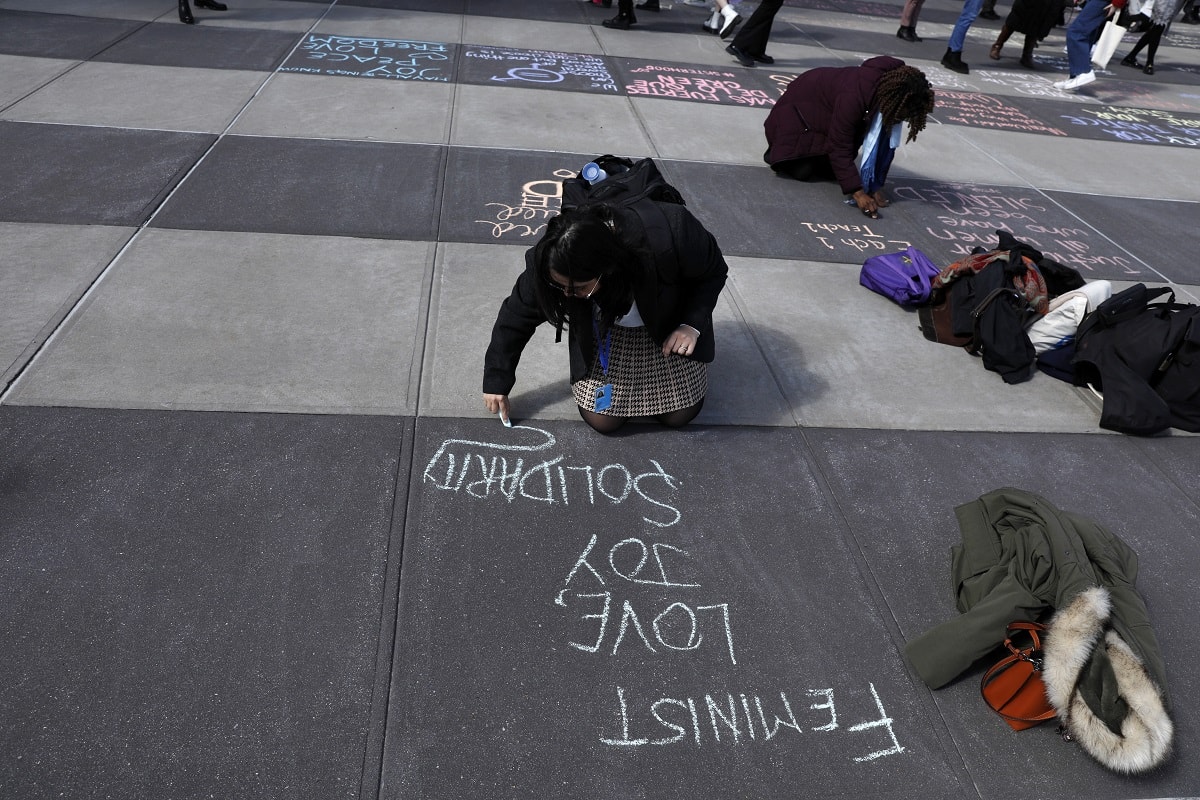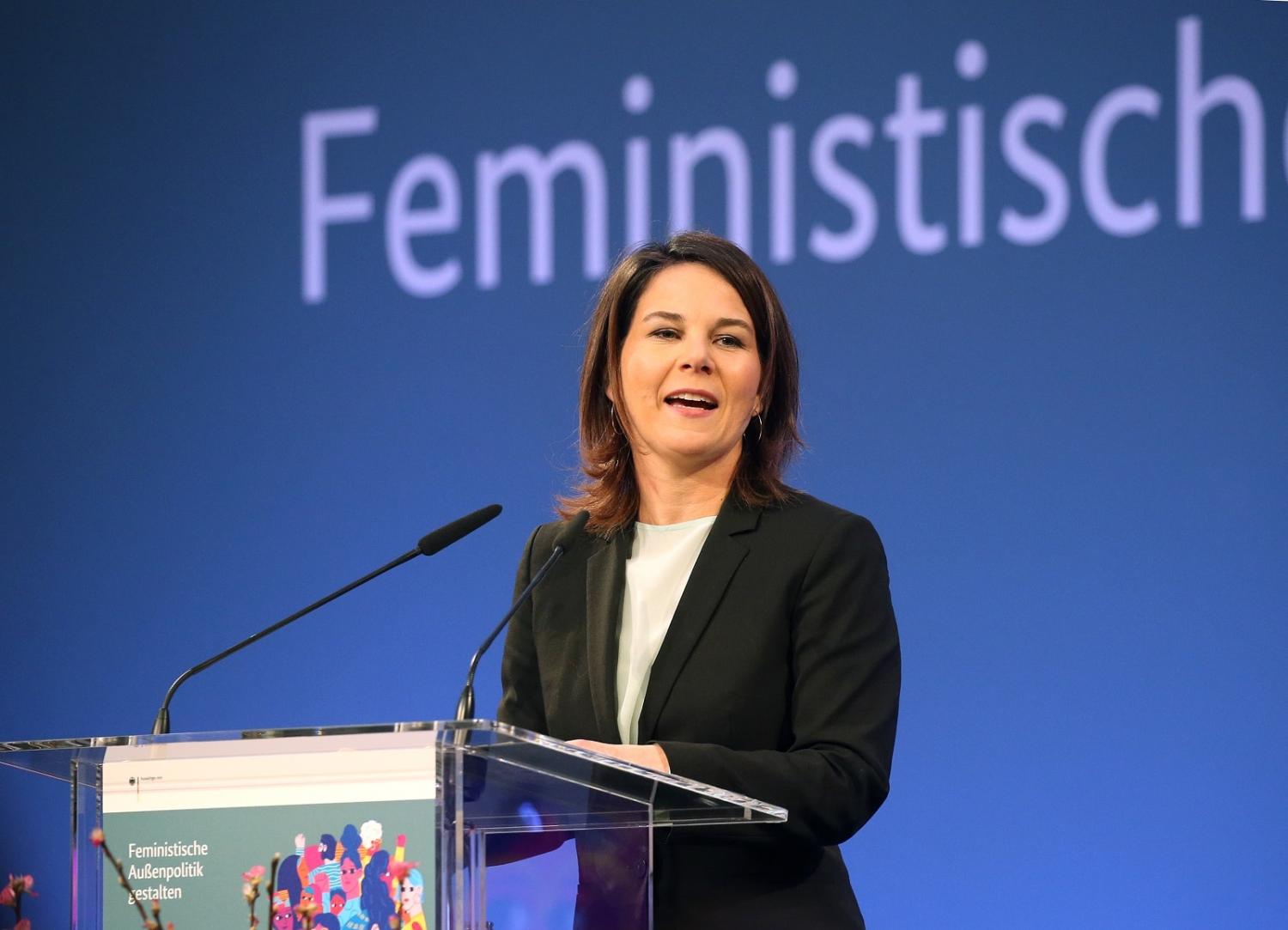As Australia’s international development community awaits the highly anticipated new International Development Policy, another strategy is quietly being formulated. The Department of Foreign Affairs and Trade is redeveloping its international approach to gender equality, building on the 2016 Gender Equality and Women’s Empowerment Strategy. The very first public consultation on this Strategy was with Pacific feminist movement actors as they gathered in Fiji in May to prepare a regional agenda on gender equality ahead of the recent Women Deliver 2023 Conference in Rwanda. In fact, DFAT has been consulting with feminists – domestic and international – to ground the Strategy in movement-led priorities and to formulate a focus that attends and responds to the voice of front-line stakeholders.
And yet, despite intentional engagement with feminist movements, it remains an open question whether the Strategy will formally be dubbed feminist.
The arguments against using the word feminist in international policy vary from the bad faith to the well intentioned, but (we argue) misconceived. Of the latter, we want to address just one. That is, the sense that the word is “alienating” to allies and would-be allies in Australia’s nearest region.
On the surface, this seems to ignore the fact that autonomous feminist movements are active in our nearest region and women human rights defenders are at the forefront of struggles against closing civic space (Cambodia; Indonesia), democratic reform (Myanmar), political participation of women in parliament (Solomon Islands; Fiji) and so on.

More deeply, however, it is based on the misunderstanding that an explicitly feminist policy is something that one does to other people, as opposed to a statement of a country’s own values and principles. There is no other formulation of policy where we tie ourselves in such knots. When we enact realist diplomacy, we do not worry about whether we are foisting “realism” on our counterparts. When we talk about liberal internationalist policy – the same school of thought from which the “rules-based order” arises – we do not worry about whether we’re imposing our rules or our sense of order on others unduly. Perhaps we should, but that’s a subject for another post.
When Australian diplomats advocate for the abolition of the death penalty, do we worry that we might be imposing Western values onto partner countries? Perhaps, but we find ways to navigate the issues – listening to local experts and finding culturally resonant ways to talk about it. And if you’re thinking “yes, but that’s a matter of life and death”, take a moment to consider the life-threatening impacts of gender inequality for women and girls.
Why then is feminism different? Is it that we believe in gender equality, but only quietly? We believe women and those of expansive gender identities should be equal to men, but to be polite we’d rather not have to say so within our diplomatic relationships?
Australia isn’t alone in eschewing use of the word feminism. Many Nordic countries take a gender lens to their policy without calling it feminist. Likewise, the United Kingdom and even the United States are increasingly prioritising gender as a central element of their development, if not foreign, policy without calling it feminist. On the other hand, an increasingly large group of countries is proudly declaring their foreign policies to be feminist, in an explicit effort to counter growing anti-rights movements that are working to erode all the progress that has been made on gender equality over the last 50 years.
So, does it matter? Can you achieve gender equality without using the word feminist?
We argue that it does matter, for precisely the same reason that it’s controversial; it gets to the heart of power. Gender inequality comes from an imbalance of power between men and women. We can’t achieve equality if we’re afraid to acknowledge that this power even exists. Or to call it by its name.
At the outset of Russia’s illegal invasion of Ukraine, we explored in The Interpreter that a feminist approach to Australia’s foreign policy should prompt a change in our action planning strategies. The argument then, as now, is that a feminist approach to Australia’s response to Ukraine must consider that the primary beneficiaries of any Australian action are Ukrainian people, and that our actions should be grounded in an understanding of their diverse circumstances and needs. So far, $790 million worth of Australian assistance has been given to Ukraine in the form of military vehicles and artillery ammunition, compared to just $10 million for the Ukraine Humanitarian Fund – just over one per cent of our total assistance package. And it is far from apparent that there has been any engagement directly with women’s rights groups on the ground. Governments with feminist foreign policies haven’t been much better, but the difference is they can be held to account by civil society to a standard to which they have committed themselves.
And that’s the problem with an implied, rather than explicit, feminism. When it comes down to it, there’s little holding the Australian government to account for the way its actions do (or don’t) disrupt the power imbalances that cause gender equality. When trade-offs are made, it is too easy to see gender equality as merely a desire instead of an intention. A “nice-to-have” easily sacrificed to the “must-haves”. That is why Australia’s international gender strategy should go beyond a well-intentioned approach to gender equality, and commit to a feminist approach.

